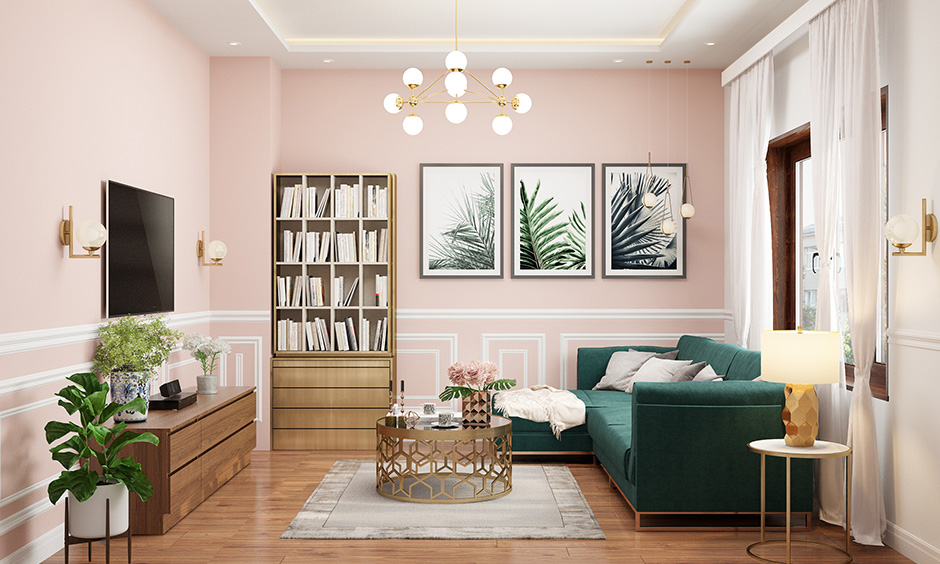Furniture is crucial in defining your home interior design’s style, comfort, and functionality. No matter how you plan to design your space, selecting the right furniture is essential to create a cohesive and inviting atmosphere.
Assess your space
Before diving into furniture selection, assessing your space and understanding its dimensions, layout, and architectural features is crucial. Take accurate measurements of each room, including doorways, windows, and other elements that may impact furniture placement. Consider the flow of traffic and how you envision using each area. Do you need a cosy reading nook, a spacious dining table for entertaining, or a multifunctional home office? Understanding your space and its intended purpose will guide you in selecting furniture that fits seamlessly and enhances the overall functionality of your home. Interior designers in Naples emphasise the importance of experimenting with different furniture arrangements to optimise your space and ensure a harmonious flow.
Define your style
Your furniture choices should reflect your style and taste. Explore various design styles, including contemporary, traditional, rustic, and eclectic, to identify which one resonates most with you. To create a visual mood board, browse interior design magazines, online portfolios, and social media platforms. Consider the aesthetic you want to achieve and how different furniture pieces contribute to that vision. Interior designers in Naples often recommend selecting key pieces that serve as a foundation for your design and building around them with complementary elements that reflect your style.
Prioritise comfort and functionality
While aesthetics are important, it’s equally crucial to prioritise comfort and functionality when selecting furniture. Consider the ergonomics of each piece and how it will be used in your daily life. For example, when choosing a sofa, assess its seat depth, backrest height, and cushion firmness to ensure adequate support and comfort for lounging or entertaining. When selecting dining chairs, consider the height of the table and the overall comfort for prolonged sitting during meals. Pay attention to the materials used in the furniture construction, opting for durable, easy-to-maintain options that suit your lifestyle. Interior Design Naples Fl often recommend investing in high-quality, timeless pieces that will withstand daily use and stand the test of time.
Consider scale and proportion
Selecting furniture proportionate to your space’s size is critical to creating a balanced and harmonious interior design. Large, bulky furniture overwhelms a small room, while undersized pieces appear lost in a spacious area. Consider the scale of each room and choose furniture that fits comfortably without compromising on functionality or visual appeal. Interior designers in Naples often suggest combining larger statement pieces and smaller, more delicate items to create visual interest and depth. Play with different heights, such as pairing a low-profile sofa with a tall bookshelf or incorporating a mix of short and tall plants to add dimension to your space.
Incorporate storage solutions
When selecting furniture, consider pieces that offer built-in storage solutions or can be easily integrated with storage accessories. Ottomans with hidden compartments, coffee tables with drawers, and built-in beds are great for maximising space and keeping your belongings neatly tucked away. Consider the specific storage needs of choosing furniture that addresses those requirements. For example, opt for a desk with ample drawer space and shelving units in a home office to organise paperwork and supplies. Consider a dresser with deep drawers or a closet system that optimises vertical space in a bedroom. Interior designers in Naples emphasise the importance of incorporating intelligent storage solutions to create a functional and visually appealing home.
Prioritise versatility
Choose items that serve multiple purposes, or that quickly move between rooms. For example, a modular sofa is reconfigured to accommodate different seating arrangements, while a nesting coffee table set is separated to provide additional surface space when needed. Ottomans with removable trays function as both seating and an impromptu dining surface, while a daybed can serve as a couch during the day and an extra bed for overnight guests. Investing in versatile furniture allows you to maximise space and adapt to changing needs.

